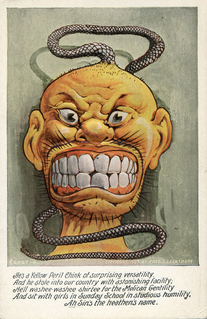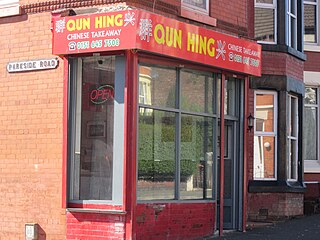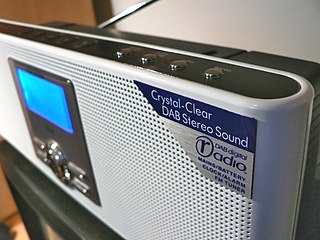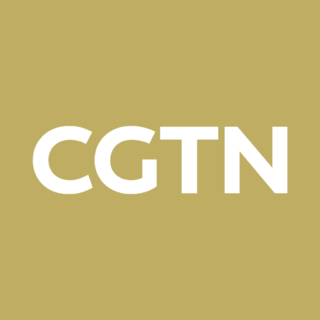Related Research Articles

Channel 4 is a British free-to-air public service television network. Its headquarters are in London, with a National HQ in Leeds and creative hubs in Glasgow and Bristol. The channel was established to provide a fourth television service to the United Kingdom in addition to the licence-funded BBC One and BBC Two, and the single commercial broadcasting network ITV.

Freeview is the United Kingdom's sole digital terrestrial television platform. It is operated by DTV Services Ltd, a joint venture between the BBC, ITV, Channel 4, Sky and transmitter operator Arqiva. It was launched on 30 October 2002, taking over the licence from ITV Digital which collapsed that year. The service provides consumer access via an aerial to the seven DTT multiplexes covering the United Kingdom. As of July 2020, it has 85 TV channels, 26 digital radio channels, 10 HD channels, six text services, 11 streamed channels, and one interactive channel.
Regular television broadcasts in the United Kingdom started in 1936 as a public service which was free of advertising, while the introduction of television and the first tests commencing in 1927. Currently, the United Kingdom has a collection of free-to-air, free-to-view and subscription services over a variety of distribution media, through which there are over 480 channels for consumers as well as on-demand content. There are six main channel owners who are responsible for most material viewed.

The Independent Television Commission (ITC) licensed and regulated commercial television services in the United Kingdom between 1 January 1991 and 28 December 2003.

Stoke Mandeville Hospital is a large National Health Service (NHS) hospital located on the parish borders of Aylesbury and Stoke Mandeville, Buckinghamshire, England. It is managed by Buckinghamshire Healthcare NHS Trust.

The Office of Communications, commonly known as Ofcom, is the government-approved regulatory and competition authority for the broadcasting, telecommunications and postal industries of the United Kingdom.

Chink is an English-language ethnic slur usually referring to a person of Chinese descent. The word is also sometimes indiscriminately used against people of East Asian and Southeast Asian appearance. The use of the term describing eyes with epicanthic fold is considered extremely offensive and highly racist, with some sources equating the word chink as offensive as the word nigger.

ITV Meridian is the holder of the ITV franchise for the South and South East of England. The station was launched at 12:00 am on 1 January 1993, replacing previous broadcaster Television South, and is owned and operated by ITV plc, under the licensee of ITV Broadcasting Limited. Meridian Broadcasting Ltd was one of several ITV plc-owned regional companies to have its legal name changed on 29 December 2006, when it became ITV Meridian Ltd. This company is, along with most other regional companies owned by ITV plc, listed with Companies House as a "Dormant company".

The Communications Act 2003 is an Act of the Parliament of the United Kingdom. The act, which came into force on 25 July 2003, superseded the Telecommunications Act 1984. The new act was the responsibility of Culture Secretary Tessa Jowell. It consolidated the telecommunication and broadcasting regulators in the UK, introducing the Office of Communications (Ofcom) as the new industry regulator. On 28 December 2003 Ofcom gained its full regulatory powers, inheriting the duties of the Office of Telecommunications (Oftel). Among other measures, the act introduced legal recognition of community radio and paved the way for full-time community radio services in the UK, as well as controversially lifting many restrictions on cross-media ownership. It also made it illegal to use other people's Wi-Fi broadband connections without their permission. In addition, the legislation also allowed for the first time non-European entities to wholly own a British television company.
Digital terrestrial television in the United Kingdom encompasses over 100 television, radio and interactive services broadcast via the United Kingdom's terrestrial television network and receivable with a standard television set. The majority of digital terrestrial television (DTT) services, including the five former analogue channels, are broadcast free-to-air, and a further selection of encrypted pay TV services are also available.

In the United Kingdom, chinky is a slur for a Chinese takeaway restaurant or Chinese food and Chinese people.
Broadcast law is the field of law that pertains to broadcasting. These laws and regulations pertain to radio stations and TV stations, and are also considered to include closely related services like cable TV and cable radio, as well as satellite TV and satellite radio. Likewise, it also extends to broadcast networks.
Elizabeth Shirley Vaughan Paget, Marchioness of Anglesey,, better known as Dame Shirley Paget, was a British public servant and writer.

In the United Kingdom, the roll-out of digital radio has been proceeding since engineering test transmissions were started by the BBC in 1990 followed by a public launch in September 1995. The UK currently has one of the world's biggest digital radio networks, with about 500 transmitters, three national DAB ensembles and 48 local and regional DAB ensembles broadcasting over 250 commercial and 34 BBC radio stations across the UK. In London there are already more than 100 different digital stations available. In addition to DAB and DAB+, radio stations are also broadcast on digital television platform as well as internet radio in the UK. Digital radio ensemble operators and stations need a broadcasting licence from the UK's media regulator Ofcom to broadcast.
High-definition television in the United Kingdom is available via cable, IPTV, satellite and terrestrial television. The first high-definition broadcasts began in late 2005 and since then the number of channels available to view has grown to a maximum of 87 that can be viewed on pay-TV service, Sky.
Stephen Andrew Carter, Baron Carter of Barnes, CBE, is a Scottish businessman and politician. Starting his career as CEO of J Walter Thompson UK & Ireland and COO of NTL UK & Ireland, in 2003 Carter became the founding CEO of Ofcom in the United Kingdom. He was subsequently the group CEO of Brunswick Group from 2007 until 2008, when he stepped down to join the administration of Prime Minister Gordon Brown, Initially serving in 2008 as Brown's chief of strategy, principal advisor, and the Acting Downing Street Chief of Staff, he was the Minister for Communications, Technology and Broadcasting from 2008 to 2009. Between 2010 and 2013 he held various management positions at Alcatel-Lucent, and in 2013 he became the group CEO of Informa, an information and events company.

Môn FM is a bilingual community radio station serving Anglesey and Gwynedd. The station broadcasts on 96.8, 102.1 and 102.5 FM and online from studios in Llangefni town centre.

RT UK, also known as Russia Today, was a free-to-air television news channel based in the United Kingdom. It was part of the RT network, a Russian state-controlled international television network funded by the federal tax budget of the Russian government. The channel's head is Nikolay Bogachikhin. It ran live broadcasts for seven years, but stopped broadcasting from London in July 2021.
Charles Alexander Vaughan Paget, 8th Marquess of Anglesey is a British peer.

China Global Television Network (CGTN) is the international division of the state-owned media organization China Central Television (CCTV), the headquarters of which is in Beijing, China. CGTN broadcasts six news and general interest channels in six languages. CGTN is registered under the State Council of the People's Republic of China and is under the control of the Propaganda Department of the Chinese Communist Party. General Secretary of the Chinese Communist Party Xi Jinping described CGTN's goal as to "tell China's story well."
References
- ↑ "Regulator archives". Ofcom. Retrieved 22 February 2016.
- ↑ "ANGLESEY, Dowager Marchioness of". Who's Who . 2015. Retrieved 22 February 2016.